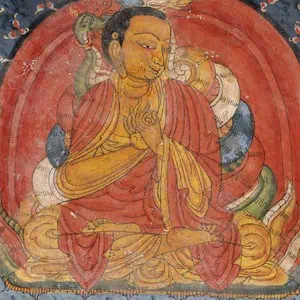Quiz questions Part 6 for Precious Garland

- What does it mean to refute self and selflessness?
- What does it mean that the world is ultimately beyond truth and falsity?
- Is there an end to saṃsarā? What didn’t the Buddha respond to this question? What is the erroneous notion he was concerned with people if he did respond to it?
- Have some beings always been Buddhas? Was there a first Buddha?
- Explain the analogy of the magical illusion of horses and elephants. What are the three perspectives and how do the people having each one react to what they see and know?
- Do illusory horses and elephants ultimately exist? Do they conventionally exist? Do horses and elephants ultimately exist? Do they conventionally exist?
- Do illusions of horses and elephants exist? Are they real or unreal? Are illusory horses and elephants real or unreal? Are horses and elephants real or unreal? Are they true or false?
- How does realizing emptiness compare to realizing the foulness of the body? Which is easier? Which stays in our minds longer? In what order are these two realized?
- If all sentient beings’ consciousnesses except for their meditative equipoise directly realizing emptiness are mistaken, what does it mean for sentient beings to have reliable cognizers?
- Why does Nagarjuna recommend we practice generosity, ethical conduct, and fortitude until we realize emptiness? How does our practice of these three change once we realize emptiness?
- What are the five advantages of practicing ethical conduct?
- Why is it important that a leader practice ethical conduct?
Venerable Thubten Chodron
Venerable Chodron emphasizes the practical application of Buddha’s teachings in our daily lives and is especially skilled at explaining them in ways easily understood and practiced by Westerners. She is well known for her warm, humorous, and lucid teachings. She was ordained as a Buddhist nun in 1977 by Kyabje Ling Rinpoche in Dharamsala, India, and in 1986 she received bhikshuni (full) ordination in Taiwan. Read her full bio.
